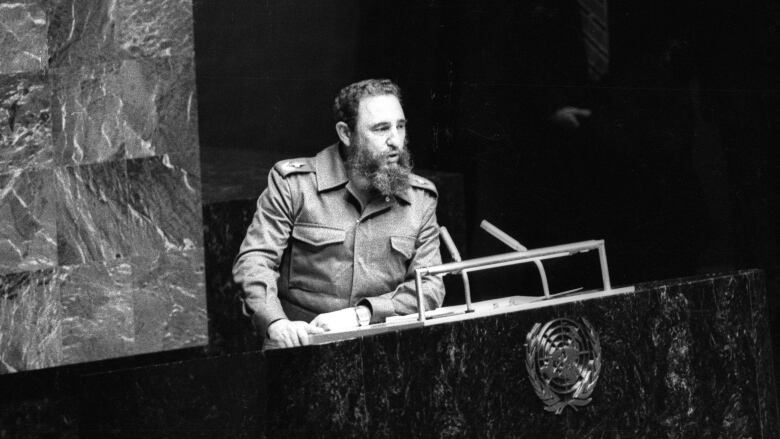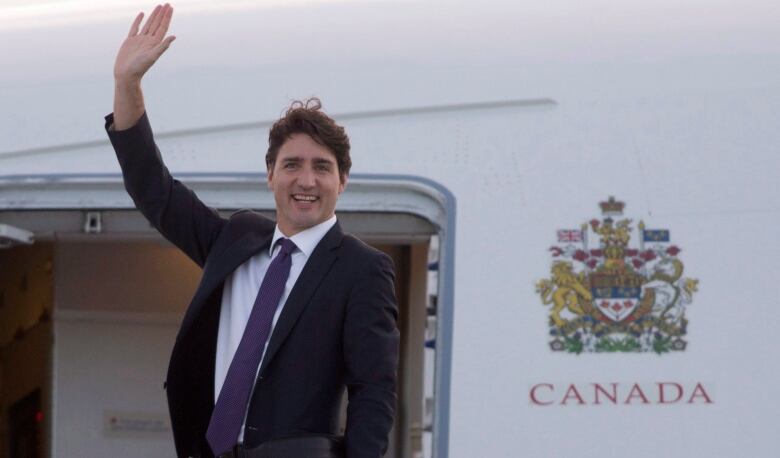Meet Castro, the friendly tyrant: Robyn Urback
Liberals glossing-over of Cuban leader's brutal dictatorship is 'sunny ways' on steroids

There are roughly two possibilities of what happened leading up to the Trudeau government soiling the sheets with its glowing tribute to Cuba's late tyrant Fidel Castro.
The first possibility favoured by irreconcilable anti-Liberals is that the prime minister was simply unaware that Castro was not Cuba's "longest serving president,"as he called him in his Saturday statement, but a tyrannicaldespot who presided over a broken country for nearly five decades.
But maybe, just maybe, the prime minister didn't see Castro as anything beyond his dad's bud. This possibility assumes, however, that the prime minister's travelling entourage was likewise unaware of Castro's proclivity for rounding up gays and assassinating opponents by firing squad during the post-revolutionheydey.
Please read my statement on the passing of former Cuban President Fidel Castro: https://t.co/vIYCZrJGfg
—@JustinTrudeauAs fun as it is to imagine this scenario (
That leads us to possibility No. 2: that the prime minister's breathtakingly tone deaf ode to a dictator was written on purpose, which is only slightly less discomforting than possibility No. 1. That means the PMO deliberately shelved any mention of, or allusion to, Castro's destructive reign, only going so far as to call him "controversial" a label that should normally be reserved for the question of whether peas belong in guacamole, not for a leader who senthundreds of thousands of people fleeing his regime.
Diplomatic relations
Trudeau's defenders have claimed that his bizarre lauding of Castro's oratory skills and the other complimentary language in his statement were necessary to maintain diplomatic relations between Canada and Cubaand an appropriate gesture of goodwill during Cuba's time of mourning. It will be interesting to see whether their preponderance of diplomacy over moral conviction holds strong when and if, for example, president-elect Donald Trump re-opens the abortion debate in the U.S.or Russian President Vladimir Putin re-ignites his crackdown on gay citizens.
If that happens, can Trudeau speak out against Putin for imprisoning people for spreading so-called homosexual propaganda,or would it threaten diplomatic relations? What if it happens on Putin's birthday?
The Liberals' glossing-over of the whole brutal-dictatorship thing is striking when compared to other statements from leaders across the world (U.S. President Barack Obama's statement at least alluded to the fact that Cuba isn't exactly Sweden when it comes to human rights)but not entirely incongruous with the style of governing we've seen over the last year.
Indeed, this is a governmentthat has spent much of its first year governing through platitudes, skirting just about anything controversial from a progressive perspective, at least in favour of sunny promises and cuddly language.

To that point: Trudeau calls himself a staunch feministbut declines to entertain the more complicated questions about how gender, religion and race intersect. He is anadvocatefor LGBT rights but has remained relatively mum on his stalled campaign promise to eliminate the restrictions on gay men donating blood. He says his government seeksjustice for missing indigenous women, but he doesn't talk about missingindigenous men.
Under Trudeau, Canada's government is not sinking $30 billion into debt but ratherhelping to grow middle-class families; it's not continuing Harper's "war" in Iraq but ratherengaging in a "peacekeeping" mission (with the oddgunfight) in order to restore order to the region.
So, of course, the Trudeau government avoided issuing a statement on Castro that could potentially alienate its progressive base: it hasmade a habit of taking strong positions on easy issues and dousing itself in platitudes when things get grey. (Many would argue that calling out a tyrant is fairly straightforward, but in certain circles, Castro falls in the "friendly tyrant" category.)
The PMO thought that instead of taking a potentially polarizing position on Castro, it could spin it all sunny and just call him "controversial." The inconvenient thing about a "sunny ways" approach to politics, however, is that not everything looks good under the light.
This column is an opinion. For more information about our commentary section, please read thiseditor'sblogandour FAQ.












_(720p).jpg)


 OFFICIAL HD MUSIC VIDEO.jpg)
.jpg)



























































































